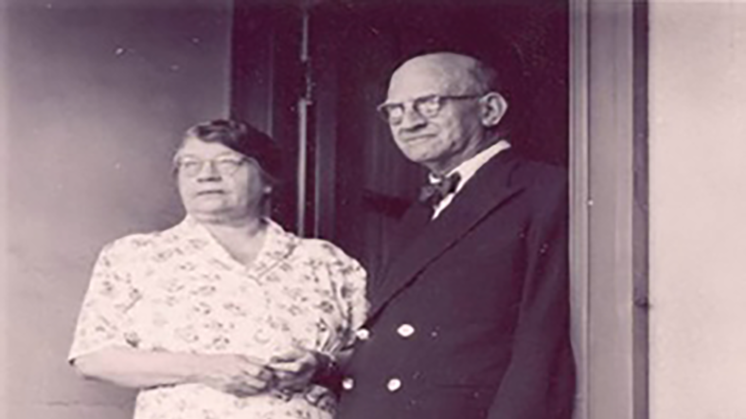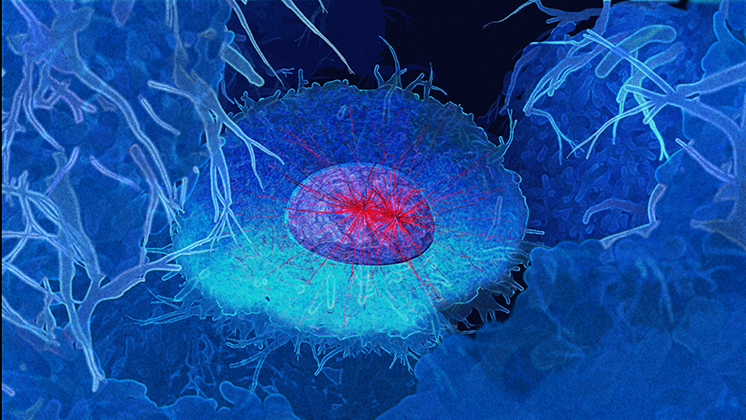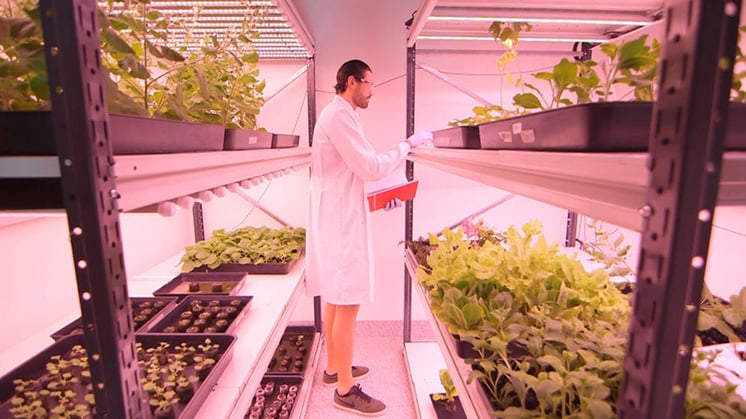Please try the following to find what you’re looking for:
- Check your spelling
- Try different words or word combinations (E.g. "fund form")

2025 Ramaciotti Awards
Applications for the 2025 Awards are now closed. The 2025 recipients will be announced in November.
Details for the 2026 Awards will be available on this page in early 2026. If you wish to be notified of any updates on the Ramaciotti Awards, please ‘Register for updates’ above.
For further details on the grants offered please refer to the 2025 Guidelines.
2024 Ramaciotti Award recipients
Perpetual, as Trustee of the Clive & Vera Ramaciotti Foundations, congratulates the 2024 recipients of the Ramaciotti Medal for Excellence in Biomedical Research, the Biomedical Research Award and the Health Investment Grants. In 2024 the Foundations have distributed over $1m to support biomedical researchers in Australia.
This $1 million grant is awarded every two years to a group or individual undertaking biomedical research within universities, public hospitals, medical research institutes or other similar organisations.
The award funds projects including personnel, equipment, major infrastructure improvements or new laboratories that help an existing, well-funded program of research or enable a major new program to begin. Traditionally, it funds a need that would not attract funding elsewhere.
The Ramaciotti Scientific Advisory Committee helps Perpetual select the winner from nominations received.
The Biomedical Research Award is offered every second year and alternates between organisations based in NSW and organisations based in all other states and territories. Organisations are therefore eligible to apply every four years.
The Ramaciotti Medal is an annual award of $50,000. The Medal honours an individual who has made an outstanding discovery (or discoveries) in clinical or experimental biomedical research that has had an important impact on biomedical science, clinical science, or the way in which healthcare is delivered.
To be eligible for the Ramaciotti Medal, the greater part of the nominee's work leading to the discovery (or discoveries) must have been conducted in Australia and they must still be actively engaged in this work.
The applicant must be peer nominated and the final recipient is selected based on a recommendation by the Ramaciotti Foundations Scientific Advisory Committee to Perpetual. Many past winners are highly regarded individuals in the top echelon of the biomedical research industry.
Ramaciotti Health Investment grants of up to $100,000 are awarded to individuals in universities, public hospitals or institutes for a contribution towards the undertaking of health or medical research with the potential path to clinical application within five years. A Health Investment grant is intended to provide enabling research support for an autonomous early career investigator who is taking, or has recently taken, a substantive position.
Grants are awarded by Perpetual, Trustee of the Foundations, on the recommendation of a dedicated Scientific Advisory Committee.
Improving lives for decades
The Ramaciotti Foundations are collectively one of the largest private contributors to biomedical research in Australia and have granted over $69 million to research projects since 1970.
That generosity – and the dedication and genius of countless doctors, researchers and scientists – has improved health and lives both in Australia and around the world.
Crucially, that initial gift of $6.7 million back in 1970 was given ‘in perpetuity’ and thanks to intelligent, careful investing has grown to be worth more than $69 million today. It has funded a wide range of projects, including many that might not have received support from other sources.
For over 50 years, the Ramaciotti Foundations have been expanding biomedical research. As trustee, Perpetual is proud to celebrate and honour their achievements – and to help carry on Vera Ramaciotti’s vision for decades to come.
50 years of philanthropy
Vera Ramaciotti established the Clive & Vera Ramaciotti Foundations in 1970. Vera's father, Major General Gustavo Ramaciotti, came to Australia from Italy as a child with his family in the mid 1800s. He received his ranking during World War I and later practised in Sydney as a lawyer.
Gustavo bought the Theatre Royal in King Street, Sydney (now part of the MLC Centre) around 1913 and left it to his children Vera and Clive in his Will. His son Clive passed away in 1967 and in 1970 Vera sold the Theatre Royal and the adjacent properties. With the proceeds she established the Clive and Vera Ramaciotti Foundations to give substantial support to biomedical research - an interest shared by Vera and her brother.

The decision to set up the charitable trusts was influenced by the strong family link with the Hall family and their philanthropic attitude (resulting in the Walter and Eliza Hall Institute) and also Vera's personal struggle with diabetes.
The first major grant went to the Walter and Eliza Hall Institute in 1971. This assisted with the establishment of a new building called the Clive and Vera Ramaciotti Research Laboratories.
*image sourced fromWEHI, prophase cell

In 1971, recognising the need for expert scientific input, Perpetual appointed the first Scientific Advisory Committee, to help ensure grants were made to worthy and legitimate projects.
The Ramaciotti Foundations continue to support biomedical research and each year make significant distributions, providing assistance to areas such as molecular biology, genetics and immunology.

Driving 50 years in biomedical research
In 1970, using funds from the sale of her family’s property holdings (including Sydney’s Theatre Royal), Vera Ramaciotti gifts $6.7 million to create the Clive and Vera Ramaciotti Foundations. The Foundations result in the establishment of the Ramaciotti Awards to support pioneering biomedical research.
In 1971, the first major grant assists with the establishment of a new building called the Clive and Vera Ramaciotti Research Laboratories at The Walter and Eliza Hall Institute in Melbourne. Vera’s decision to set up the Foundations was partly influenced by the strong family link with the Hall family and their philanthropic attitude, the same Hall family that carries the name of the institute that received the first funding from the Ramaciotti Foundations.
In what proves to be a crucial early decision, the Foundations create a Scientific Advisory Committee to guide decision making, maintain the integrity of the grant process and adapt giving over time to ensure grants remain relevant and target areas where other sources of funding may not go.
In 1976 Professor Janet McCredie uses a grant from the Ramaciotti Foundations to continue her work on Neural Crest Injury – a field vital to the understanding of birth defects.
In 1978 Professor Graeme Clark AC receives a Ramaciotti grant at a crucial stage in his research. It’s a small grant but one large enough for him to retain a key engineer. His multi-channel cochlear implant eventually helps hundreds of thousands of deaf people around the world.
During the 1970s, the Ramaciotti Foundations fund vital research in bone cells, blood growth factors, thalidomide, diabetes and more. By the end of the decade the Ramaciotti Foundations are funding more than 275 research projects in Australia.
In 1982 Vera Ramaciotti dies but the impact of her Foundations widen. Thanks to intelligent investing over a long time-frame (and the power of compound returns) by 1989, the Ramaciotti Foundations have already given away more money than they were established with – and are making grants of over a million dollars a year.
In 1981 The Ramaciotti Foundations are the source of Professor Christopher Parish’s first external research grant. His work provides theoretical foundations for new cancer drugs. Professor Parish went on to receive the Ramaciotti Medal for Excellence in 2005.
“The Ramaciotti Foundations played an important role in supporting my early research on complex carbohydrates, research that eventually led to the development of the anti-cancer drug, PI-88. At that time, my carbohydrate research was unfashionable and controversial, but the Foundations were willing to provide my laboratory with seed funding that helped me advance my research in this new area." Professor Christopher Parish (November 2005)
In the mid-80s, funding support from the Ramaciotti Foundations helps Professor Rob Sutherland FAA AO, a globally renowned giant of cancer research to establish a cell culture facility for cancer research at the Garvan Institute of Medical Research. Today there are more than 180 cancer researchers at Garvan. Professor Sutherland went on to receive the Ramaciotti Medal for Excellence in 2000.
In the 1990s, funding from the Ramaciotti Foundations helps expand knowledge of the brain and nervous system. Growing fund returns enable the launch of the Ramaciotti Medal for Excellence, supporting further research by previous grant recipients. At decade’s end, the Ramaciotti Foundations are granting around $1.5 million a year.
In 1995 Professor John Coghlan (a specialist in molecular biology and hormone production in cells) wins the inaugural Ramaciotti Medal for Excellence. His work is used in fields as wide as foetal development, cancers and hypertension. In 1997 Professor Coghlan was appointed to the Ramaciotti Foundations’ Scientific Advisory Committee.
“The reason no one dies in Australia of diseases like polio and measles is because of research. That’s why encouraging medical research through the Awards is so important.”
The late Professor John Coghlan AO
In 1998 Professor Elspeth McLachlan becomes the first woman to win the Ramaciotti Medal for Excellence. It supports her work on neural pathways in the autonomic nervous system, improving treatments for spinal and nerve damage.
The strong performance of the Foundations allows them to support research at an institutional level. In 2001, the inaugural Ramaciotti Foundations Biomedical Research Award of $1 million is granted to the Alfred Hospital and Baker Research Institute to fund proteomic and genomic research.
In 2008, Professor Ian Frazer AC wins the Ramaciotti Medal for Excellence for his work contributing to the development of the world’s first cervical cancer vaccines. Professor Frazer first received Ramaciotti funding in 1989.
In 2009, the Foundations provide $1 million for a joint research team at the Children’s Medical Research Institute and The University of Newcastle to establish the world’s first Centre for Kinomics. The hubs (based at both organisations) can be accessed by research teams across NSW to analyse current therapeutic drugs and develop more effective new ones.
“Receiving this funding means that people suffering from a range of conditions will benefit, because scientists from all over the state will have access to this equipment for a broad range of research projects.”
Professor Phillip Robinson (November 2009)
By the end of the 2000s the value of the Ramaciotti Foundations had grown to more than $50 million.
The 2010s recognise the strength of female researchers to biomedical research in Australia. Professor Kathryn North AC, Professor Carola Vinuesa, Professor Jane Visvader and Professor Susan Clark are all recognised through the Ramaciotti Medal for Excellence.
In 2015, the $1 million Ramaciotti Biomedical Research Award is granted to Professor David Craik of The University of Queensland’s Institute for Molecular Bioscience and Professor Marilyn Anderson of the La Trobe Institute for Molecular Science. The grant helps support research into producing pharmaceuticals from plants. This initial funding from the Ramaciotti Foundations has helped The University of Queensland and its partners receive additional funding of $35 million to establish the Australian Research Council Centre of Excellence for Innovations in Peptide and Protein Science.
“We are thrilled to receive the Ramaciotti Biomedical Research Award for our work on using plants as ‘biofactories’ for producing next-generation pharmaceuticals….this type of blue-sky research falls outside the realm of work typically funded by government or industry so we are particularly grateful to the Ramaciotti Foundations for their support.”
Professor David Craik (October 2015)
A further example of this innovative approach is the 2019 Ramaciotti Biomedical Research Award of $1 million to the Menzies School of Health Research. The funding has created the Ramaciotti Regional and Remote Health Sciences Training Centre which will focus on creating a local and Indigenous biomedical workforce in northern Australia. The Centre currently has 24 youth engaged in training including youth from the most remote parts of the Northern Territory.
“Having the Ramaciotti name behind this Centre will help Menzies [School of Health Research] build capacity in the delivery of Aboriginal and Torres Strait Islander health services by Aboriginal and Torres Strait Islander health staff and develop a model which can be implemented beyond the Northern Territory.”
Associate Professor Heidi Smith-Vaughan (October 2019)
By the end of 2019, the Ramaciotti Foundations had distributed over $61 million for biomedical research - often to projects not easily funded from other sources.
The Centre is delivering real-world opportunities to young people from across the Northern Territory. Raelene Collins, picture here, completed her lab-based traineeship and is now undertaking a Nursing degree. She has also graduated to our Centre’s cadet program which supports her with casual employment while studying. Photo courtesy of the Menzies School of Health Research.

Perpetual’s Philanthropic Services are provided by Perpetual Trustee Company Limited (PTCo), ABN 42 000 001 007, AFSL 236643. This webpage has been prepared by PTCo and may contain information contributed by third parties. It contains general information only and is not intended to provide you with advice or take into account your personal objectives, financial situation or needs. The information is believed to be accurate at the time of compilation and is provided by PTCo in good faith. You should consider whether the information is suitable for your circumstances and we recommend that you seek professional advice. To the extent permitted by law, no liability is accepted for any loss or damage as a result of any reliance on this information. PTCo does not warrant the accuracy or completeness of any wording in this document which was contributed by a third party. View the Perpetual Group's Financial Services Guide.
The information on this website is intended for Australian residents or citizens who are currently located in Australia, or where expressly indicated, New Zealand residents or citizens who are currently located in New Zealand only, and should not be relied on by residents or citizens of any other jurisdiction. By clicking the “Proceed” button below, you are agreeing to the Terms & Conditions of use.
Please read this information carefully as it governs your use of this website. Except as otherwise indicated, the contents of this website and the products and services are intended for persons residing in the United States, and the information on this website is only for such persons. This website is not directed to any person in any jurisdiction where its publication or availability is prohibited. Persons in such jurisdictions must not use this website. By clicking the “Proceed” button below, you are agreeing to these terms.
Please read this information carefully as it governs your use of this website. The contents of this website and the products and services mentioned are intended for persons residing in Singapore, and the information on this website if only for such persons. This website is not directed to any person in any jurisdiction where its publication or availability is prohibited. By clicking the “Proceed” button below, you are agreeing to these terms.
This information and the terms of use are subject to change at any time without notice. The contents of this website are intended for residents and citizens of the United Kingdom, and the European Union, and should not be relied on by residents or citizens of other jurisdictions. All investment products and services referenced in this website are managed and offered by either JOHCM or its affiliates within the Perpetual Limited group of companies ("Perpetual Affiliates"). By clicking the “Proceed” button below, you are agreeing to the Terms & Conditions of use.
This information and the terms of use are subject to change at any time without notice. The contents of this website are intended for residents and citizens of the United Kingdom, and the European Union, and should not be relied on by residents or citizens of other jurisdictions. All investment products and services referenced in this website are managed and offered by either JOHCM or its affiliates within the Perpetual Limited group of companies ("Perpetual Affiliates"). By clicking the “Proceed” button below, you are agreeing to the Terms & Conditions of use.